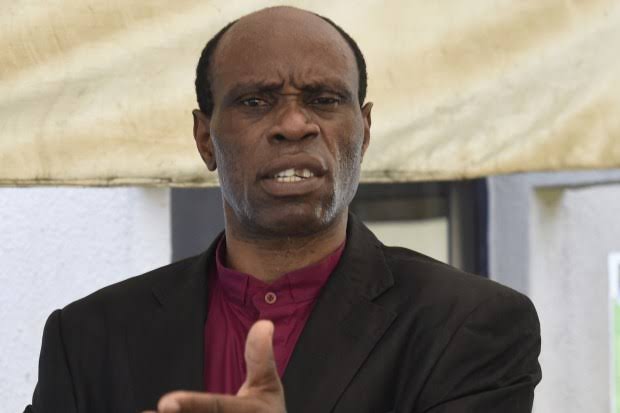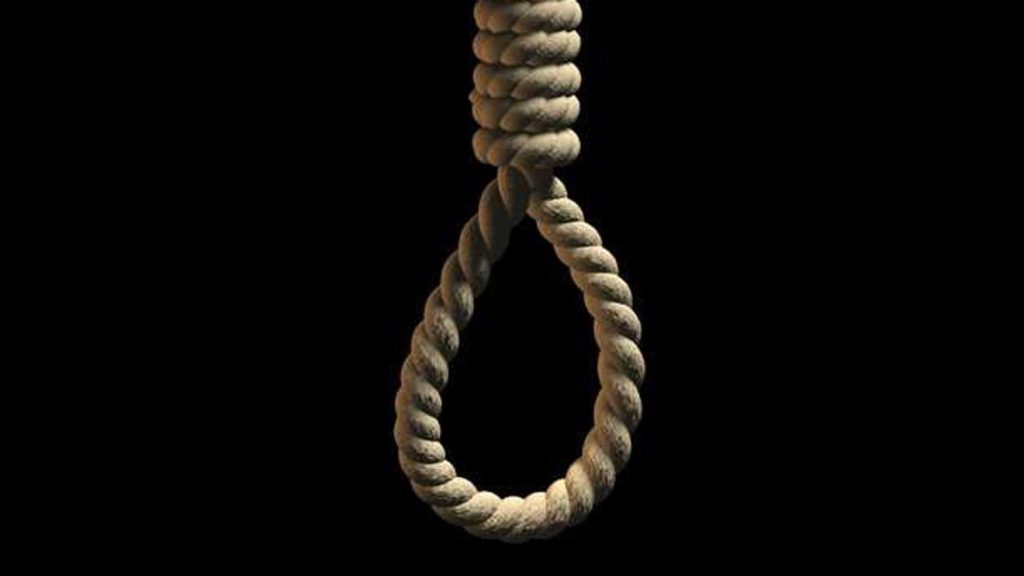News
Nigeria spends N930b on fuel imports in Feb. 2025 despite rising local refining capacity
Despite Nigeria ‘s increasing local refining capacity, fuel and diesel imports shockingly totaled N930 billion in February 2025, prompting worries about economic policy.
Consequently, this substantial reliance clearly highlights critical gaps that persist within local production, urgently demanding swift and strategic investments to effectively curb these costly dependencies.
This development has raised concerns about the country’s energy policy direction and economic sustainability.
Data from the Nigerian Midstream and Downstream Petroleum Regulatory Authority (NMDPRA) reveal that Nigeria imported N5.5 trillion in petroleum products from October 2024 to January 2025.
Meanwhile, Dangote Refinery and The Nigerian National Petroleum Company (NNPC) NNPCL’s Port Harcourt Refinery boosted output, yet Nigeria’s heavy foreign fuel reliance persists.
This stark contrast underscores urgent gaps in domestic refining despite production expansions.
Transitioning to solutions, analysts urge accelerated infrastructure investments and policy reforms to bridge supply deficits.
Without swift action, fuel import dependency risks draining national resources amid rising global energy costs.
Local Refining Capacity Falls Short
In February 2025, NMDPRA justified its decision to license oil marketers for fuel imports, citing a shortfall in domestic supply.
Ogbugo Ukoha, Executive Director of Distribution, Systems, Storage, and Retailing Infrastructure at NMDPRA, explained that local refineries currently meet less than 50% of Nigeria’s daily fuel consumption.
“Before the current administration took office, the daily PMS supply sufficiency exceeded 60 million litres, averaging about 66 million litres per day.
However, following the removal of fuel subsidies in May 2023, consumption dropped significantly to an average of 50 million litres per day,” Ukoha stated.
“Of this, less than half is supplied by domestic refineries, necessitating imports to bridge the gap.”
Despite the operational status of key refineries such as those in Warri and Port Harcourt and private facilities like Waltersmith and Aradel, Nigeria imported 701.75 million litres of petrol and 265.88 million litres of diesel in February 2025.
These figures underscore ongoing structural challenges within the sector.
Dangote Refinery’s Stockpile Raises Question
Aliko Dangote, President of Dangote Industries Limited, disclosed in February that his refinery had over 500 million litres of petrol and petroleum products worth N600 billion in stock.
While this demonstrates the growing capacity of private refineries, it also raises questions about why Nigeria remains heavily reliant on imports.
Business consultant Dan Kunle warned that the import-dependent approach could undermine recent gains in naira stability. “The continued reliance on fuel imports exerts pressure on foreign exchange reserves and highlights inefficiencies in local refining and distribution,” Kunle noted.
Structural Bottlenecks Persist
Despite progress in local refining, experts point to several industry bottlenecks that hinder self-sufficiency in fuel production. These include logistics challenges, production scale-up issues, and inefficiencies in supply chain management.
Kunle emphasized the need for a clearer policy framework to address these challenges. “While it’s encouraging that more refineries are coming online, the government must prioritize resolving structural inefficiencies to reduce reliance on imports and ensure energy security,” he said.
Policy Implications
The current situation presents a paradox: while Nigeria is increasing its refining capacity, it continues to spend heavily on fuel imports. This duality raises questions about the alignment of policies with the country’s long-term energy goals.
As Nigeria navigates this complex landscape, stakeholders are calling for a more strategic approach to energy planning—one that prioritizes self-sufficiency and leverages local refining capabilities to reduce forex pressure and stabilize the economy.
For now, the high import figures serve as a stark reminder of the work that remains to be done in achieving energy independence.
News
2027: ADC Coalition Deceiving Nigerians – Baba-Ahmed
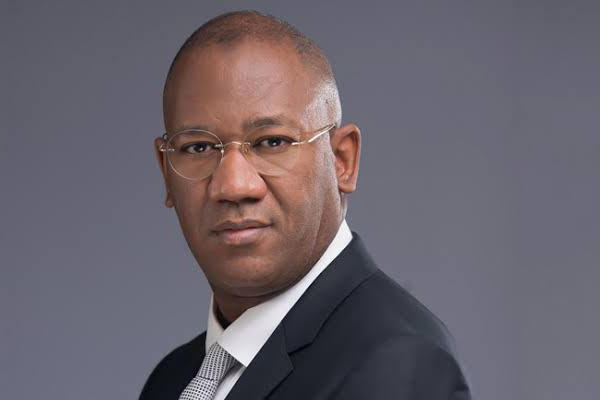
The 2023 Labour Party (LP) vice-presidential candidate, Datti Baba-Ahmed, has warned Nigerians that the opposition coalition under the African Democratic Congress (ADC) is giving false hope about rescuing the country from underdevelopment.
“They are deceiving us,” Baba-Ahmed said during an interview on Channels Television’s Politics Today on Friday.
Baba-Ahmed, who ran alongside Peter Obi in the 2023 presidential election won by Bola Tinubu of the All Progressives Congress (APC) expressed his willingness to be Obi’s running mate in the 2027 presidential election.
Although Obi has shown interest in the 2027 race and is aligning with ADC coalition figures such as David Mark, Atiku Abubakar, Nasir el-Rufai, Rotimi Amaechi, and Rauf Aregbesola, Baba-Ahmed stressed that he wants Obi to remain in the Labour Party and contest as its presidential candidate.
“I’m in the Labour Party. I’m a Peter Obi man. I still want Peter Obi to come back to the Labour Party and contest the 2027 election,” Baba-Ahmed stated.
When asked about his plans for the 2027 race, Baba-Ahmed confirmed his readiness to serve as a running mate for like-minded leaders committed to restoring Nigeria.
“If Nigeria is still around and there is an electoral system to follow, my love for Nigeria is undying.
I would appropriately associate with groups and individuals aligned with restoring the nation,” he said.
Baba-Ahmed also revealed two potential leaders he would consider deputising, with Peter Obi being his primary choice. “The first one has not said anything.
The second one is Peter Obi. I’m always with Peter Obi until he decides not to,” he added.
News
Tinubu Secures Fresh $238m Loan from Japan

Nigeria has secured a $238 million loan from the Japan International Cooperation Agency (JICA) to support the expansion and modernization of the national power grid.
The deal, confirmed during engagements at the ninth Tokyo International Conference on African Development (TICAD9) in Yokohama, Japan, reflects a strategic shift towards implementation-driven energy development.
President Bola Tinubu highlighted that Nigeria’s participation at TICAD9 focused on concrete, outcome-oriented partnerships rather than ceremonial diplomacy.
“We are moving from planning to implementation, from agreements to delivery, and from promises to measurable results,” he said.
Details of the JICA Loan Project
The $238 million loan, supported by a Federal Executive Council counterpart funding of ₦19,083,192,805.30, will finance significant upgrades to Nigeria’s transmission infrastructure.
Key components of the project include:
Construction of 102.95 km of new 330kV double-circuit lines
Construction of 104.59 km of 132kV double-circuit lines
Development of four 330/132/33kV substations and two 132/33kV substations
Multiple line bay extensions to improve efficiency and reduce system losses
According to Minister of Power, Chief Adebayo Adelabu, the partnership with Japanese companies such as Toshiba, Hitachi, and Japan’s Transmission & Distribution Corporation is essential for unlocking Nigeria’s energy potential.
“Our focus is on transmission infrastructure, operational efficiency, and strategies to reduce system losses.
This $238 million loan from JICA provides the backbone for that transformation,” Adelabu explained.
Adelabu acknowledged Japan’s consistent support for Nigeria’s power sector, highlighting contributions in infrastructure, technical studies, training, and financing.
He emphasized that JICA’s backing is critical to expanding access to reliable, affordable, and sustainable electricity across the country.
The project aims to strengthen Nigeria’s power transmission network, improve system reliability, and enhance overall efficiency, ultimately supporting industrial growth and meeting rising electricity demand nationwide.
News
‘Gate of Hell’ Will Open on Gaza’– Israeli Defence Issues Finally Warning to Hamas

Israeli Defence Minister Israel Katz has issued a fierce warning to Hamas, declaring that Gaza City will face complete destruction if the militant group refuses to accept Israel’s conditions for ending the war.
Katz, in a statement shared on social media on Friday, August 22, 2025, used sharp words to describe Israel’s next steps.
He said the “gates of hell” would open on Hamas if it failed to disarm and release all hostages.
“Soon, the gates of hell will open upon the heads of Hamas’s murderers and rapists in Gaza until they agree to Israel’s conditions,” Katz wrote.
He added that if Hamas refused, Gaza City would suffer the same fate as Rafah and Beit Hanoun, two cities previously flattened by Israeli offensives.
His comments mark one of Israel’s strongest warnings since the escalation of the conflict.
The minister’s remarks came only hours after Prime Minister Benjamin Netanyahu announced that negotiations had been ordered to free the hostages held in Gaza.
Netanyahu explained in a video address that Israel’s military operation in Gaza City would not stop during talks. “Defeating Hamas and releasing our hostages go hand in hand,” he said.
The prime minister also confirmed the mobilisation of 60,000 reservists to join the offensive.
Meanwhile, mediators have been waiting for Israel’s response to a ceasefire plan that Hamas accepted earlier in the week.
The proposal suggests a phased release of hostages, but Israel insists that only a deal ensuring the release of all captives at once will be accepted.
Israel’s hardened stance has sparked growing concern worldwide.
International leaders have cautioned that an expanded assault on Gaza City could worsen the humanitarian disaster already unfolding in the region.
Gaza’s health ministry says more than 62,000 Palestinians, most of them civilians, have been killed since Israel’s military campaign began.
The United Nations considers these figures credible.
The war was triggered by Hamas’s October 2023 attack, which left 1,219 people dead in Israel, mostly civilians.
Since then, the conflict has intensified, with both sides showing little sign of compromise.
With Katz’s threat to turn Gaza City into rubble if demands are not met, the conflict appears to be entering an even deadlier stage.
The international community continues to press for a ceasefire, but Israel’s leadership insists that victory over Hamas and the release of all hostages remain its top priorities.
Health
NAFDAC Raises Alarm as Fake Cowbell Milk Floods Nigerian Markets
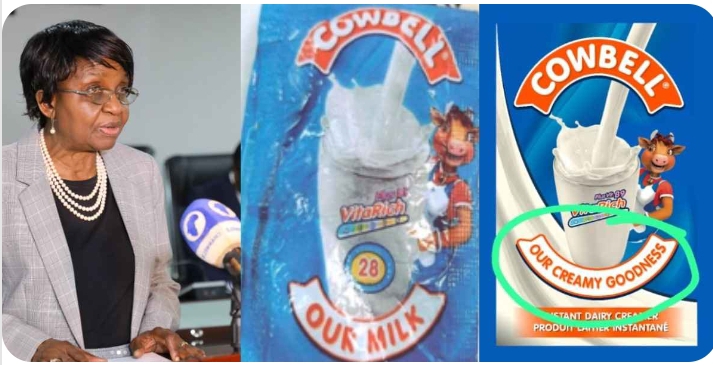
The National Agency for Food and Drug Administration and Control (NAFDAC) has raised alarm over the circulation of fake Cowbell “Our Milk” 12g sachets in Nigeria.
In a statement issued on Friday, August 22, 2025, the agency explained that the counterfeit milk is packaged to look like the discontinued Cowbell “Our Milk,” but it is unauthorised and unsafe for consumption.
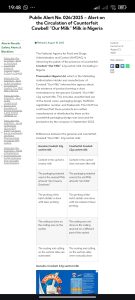
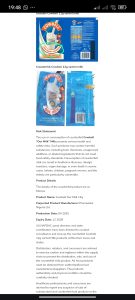
NAFDAC clarified that Promasidor Nigeria Ltd, the authentic manufacturer, stopped producing Cowbell “Our Milk” in September 2023.
The product was replaced with Cowbell “Our Creamy Goodness.” Despite this, fake versions of the old product have found their way into Nigerian markets.
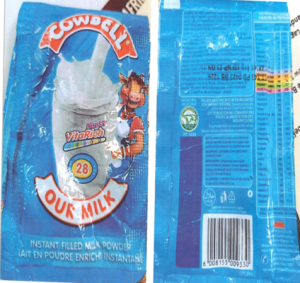
Picture of Fake cowbell milk.
The counterfeit sachets bear the brand name, NAFDAC registration number, and familiar packaging design, making them difficult for unsuspecting buyers to identify as fake.
Health Dangers of Fake Cowbell Milk
NAFDAC warned that the consumption of these counterfeit products poses serious health risks.
Fake milk could contain toxic chemicals, harmful additives, or diluted ingredients that endanger human health.
Infants, children, pregnant women, and the elderly are the most vulnerable. Possible dangers include:
- Foodborne illnesses
- Allergic reactions
- Organ damage
- Long-term health complications
- In extreme cases, death
Counterfeit Product Details
- Product Name: Cowbell “Our Milk” 12g sachet
- Purported Manufacturer: Promasidor Nigeria Ltd
- Production Date: 04/2025
- Expiry Date: 12/2028

Picture of original cowbell milk.
NAFDAC Issues Strong Warning
The agency urged Nigerians to remain vigilant and avoid purchasing the counterfeit milk.
Healthcare professionals, distributors, and consumers have been advised to report suspicious sales of substandard or fake products immediately.
Reports can be made through:
The nearest NAFDAC office
Toll-free line: 0800-162-3322
Email: sf.alert@nafdac.gov.ng
NAFDAC also called on traders and retailers to stop selling the fake sachets.
The agency assured the public that strict enforcement measures are being taken to remove the counterfeit products from circulation.
This is not the first time Nigerians have faced risks from fake food and beverages.
Experts warn that counterfeit consumables are becoming more sophisticated, often making them difficult to spot.
Consumers are advised to always check product details, expiry dates, and packaging changes announced by manufacturers.
By highlighting the dangers and raising awareness, NAFDAC says it hopes to protect Nigerians from avoidable health crises linked to fake milk products
Africa
‘Misplaced Priority’: Peter Obi Blasts FG’s ₦142bn Bus Terminal Project

Former Labour Party presidential candidate Peter Obi has slammed the Federal Government’s approval of ₦142 billion for the construction of bus terminals across Nigeria, describing it as a reckless misplacement of priorities.
Obi issued a statement on Friday, August 22, via his Official X formerly Twitter platform, warning that the project reflects poor leadership and lack of focus in managing Nigeria’s limited resources. He titled his statement, “₦142 Billion for Bus Terminals.”
According to him, the true test of leadership is how scarce resources are prioritized.
He stressed that investing such a huge amount in bus terminals while critical sectors like healthcare suffer shows a government that is out of touch with citizens’ realities.
Obi said: “The difference between success and failure in any nation is how leaders prioritise resources.
The decision to spend ₦142 billion on six bus terminals exposes a lack of competence and vision. It is a clear sign of poor leadership.”
The Federal Executive Council had recently approved the funds for the construction of one modern bus terminal in each of the six geopolitical zones.
The government described it as part of efforts to modernise transport infrastructure and improve mobility nationwide.
But Obi strongly disagreed. He compared the allocation to healthcare funding, pointing out that the combined budget for all teaching hospitals and federal psychiatric centres in Nigeria is less than ₦100 billion in the 2024 budget.
“This is disturbing,” Obi continued, “because health remains one of the most critical sectors of development. Yet it is underfunded and deteriorating rapidly.
The World Health Organization has reported that over 20 million Nigerians live with mental health conditions.
This is a tragic irony. How can the government ignore this crisis and focus on bus terminals?”
He argued that the health sector, alongside education and poverty reduction programs, deserves priority attention.
Obi insisted that until government spending reflects the real needs of Nigerians, the country will remain trapped in poor governance.
Many Nigerians have also taken to social media to express anger, echoing Obi’s concerns. Critics argue that the decision proves the Federal Government is disconnected from the economic struggles of ordinary citizens.
For Obi, the ₦142 billion project is not just a case of wrong timing.
He sees it as a clear example of governance failure and misplaced priorities.
-
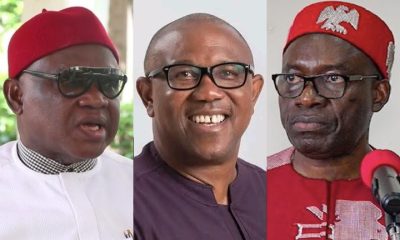
 Featured4 days ago
Featured4 days agoYour Attacks on Peter Obi Are Petty, Stop It! Chekwas Rebukes Soludo
-

 News3 days ago
News3 days agoTension in Anambra community as senior police officer shoots kinsman dead
Colleagues, others try cover-up; victim's family fights back
-
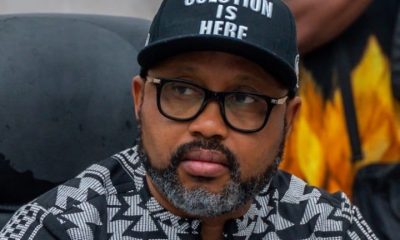
 News7 days ago
News7 days agoAnambra South Bye-Election: APC Chief Rescues Deputy Gov Caught In Vote Buying From Angry Youths
By Chuks Collins, Awka
-

 News5 days ago
News5 days agoNigerian visa applicants must provide 5-yr social media history — US embassy
-

 Celebrity/Entertainment21 hours ago
Celebrity/Entertainment21 hours agoHow Nigerian TikToker Geh Geh Made ₦45 Million in One Night
-

 Analysis6 days ago
Analysis6 days agoSystemic Sabotage: How APC, INEC Colluded To Undermine Amamgbo’s Senatorial Bid
By Arthur Ezechukwu
-

 News3 days ago
News3 days agoTerrorist Organisation: APC, PDP Members in US, UK, France Risk Deportation
-

 Celebrity/Entertainment5 days ago
Celebrity/Entertainment5 days agoWhy single mothers can’t raise boys into proper men — Jim Iyke
-

 News6 days ago
News6 days agoBREAKING: Troops arrest Nigeria’s most wanted terror kingpin
-

 News2 days ago
News2 days agoVandal electrocuted while vandalizing Aba power infrastructure



